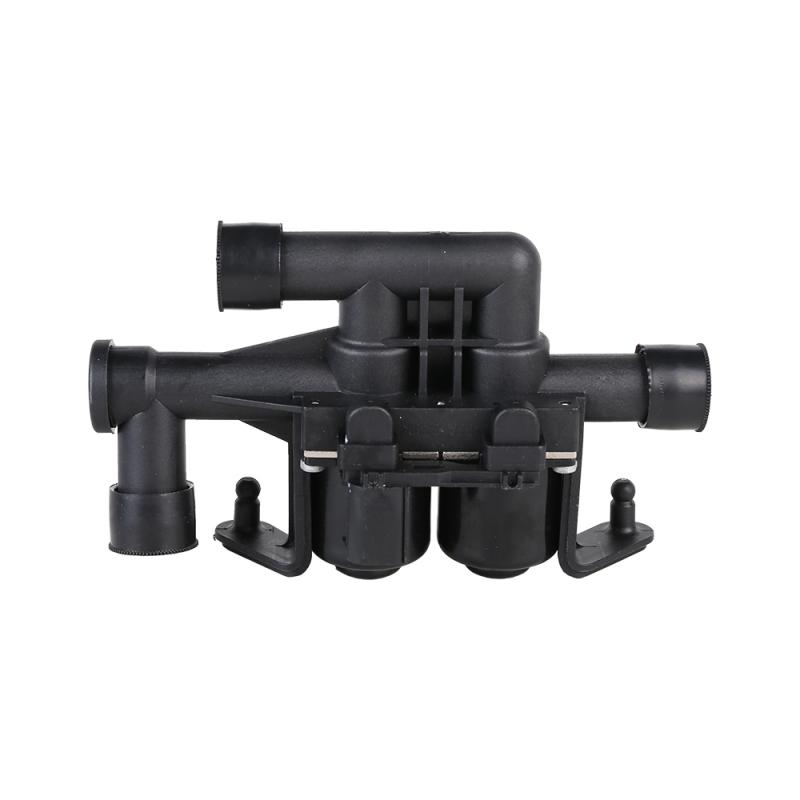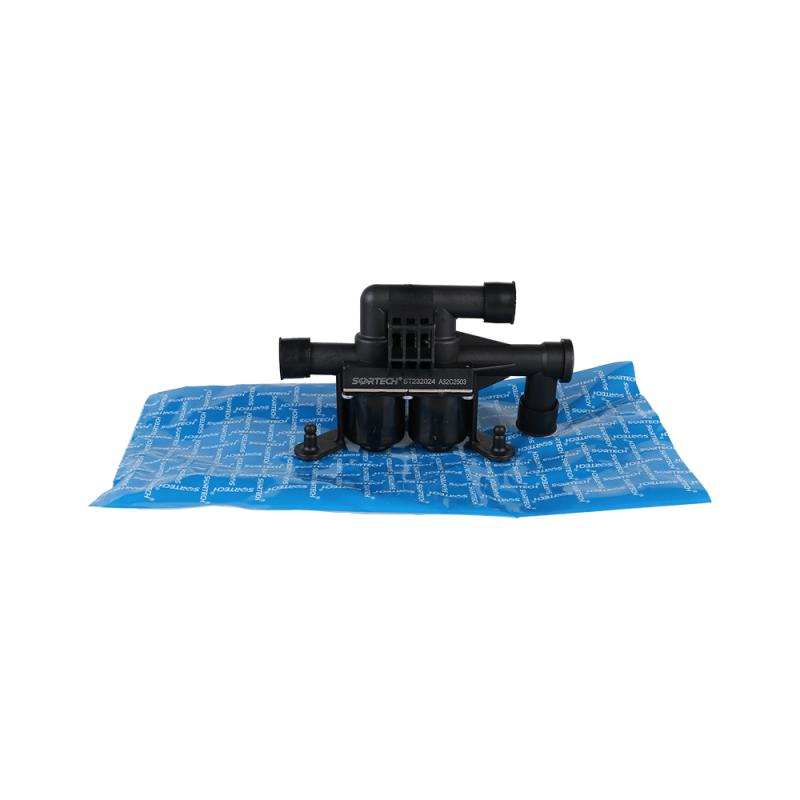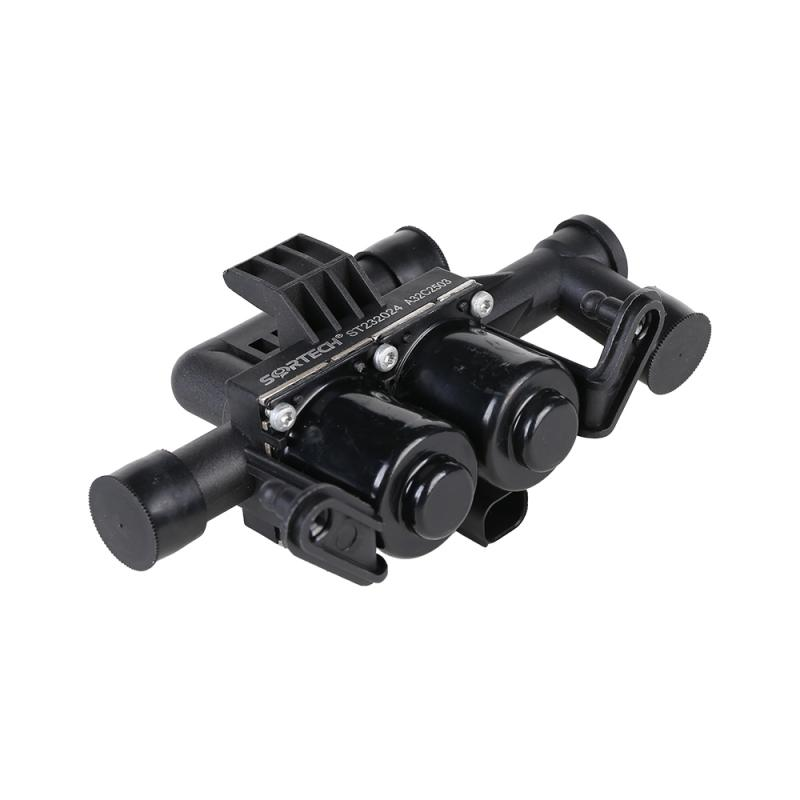Scorching summer heat! Everyone wants their car's air conditioning to run cooler, but sometimes, this intermittent fluctuation can occur. This could be caused by a lack of refrigerant, a dirty condenser, a clogged air conditioning filter, or a malfunctioning heater control valve. Let's take a look at the potential impacts of a malfunctioning heater control valve!
It is a valve that controls the flow of hot water to the heater core in a vehicle's air conditioning and heating system. It's typically located on the heater core's inlet or outlet pipe and is activated by a pull wire, electronic control, or a vacuum signal. Not all cars have this feature in their air conditioning and heating systems. Some models allow hot coolant to flow through the heater core at all times when the engine is running (this type of car air conditioning and heating system uses a blending damper to adjust the mix of cooled and heated air to achieve the desired cabin temperature).

How a heater control valve works:
How a car's heater control valve works: The radiator in the heater is connected to the engine's circulating water via inlet and outlet pipes, and the water valve acts as a switch. When the water valve is open, the water flow is connected, circulating engine water into the radiator, and the fan blows heat into the cabin. Conversely, when the water valve is closed, the heater is inoperative.
Due to the summer heat, we don't need a heater to warm the car, but the heater tank is located inside the dashboard and can dissipate significant heat even when not in use. If your air conditioning box isn't properly sealed, warm air may escape during operation. Therefore, some models have a heater control valve. When the A/C is in cooling mode, the valve shuts off the water supply to the heater tank. This prevents the tank from dissipating heat inside the car, allowing the air conditioning to cool more effectively.

Symptoms of a heater control valve malfunction:
1. Water leakage: Because the heater control valve connects to multiple heater water pipes and contains a motor, a poor seal can cause antifreeze to leak, leading to a loss of antifreeze. In severe cases, this can cause the water temperature to rise. 2. Heater not heating: When using the heater in winter, the heater control valve is closed and cannot be opened. This prevents hot water from circulating in the heater tank, resulting in a lack of heat.
3. Air conditioning not cooling: Because the heater control valve cannot be closed, the heater tank continues to dissipate heat while the air conditioner is in use, affecting cooling.

How to troubleshoot a heater control valve problem:
1. Check the antifreeze:
If you find antifreeze leaking from the heater control valve, check the antifreeze level immediately. If the level is too low, refill it and replace the valve immediately.
2. Check the opening and closing performance:
Touch the inlet and outlet pipes of the heater control valve before and after turning the A/C on. If the two pipes are the same temperature when not cooling, it indicates normal operation. If the two pipes are still the same temperature when cooling, it indicates abnormal closing.
Checking the heater control valve:
1. Checking the power signal:
After confirming that the heater control valve has a continuity problem, check the control motor's power cable for a control signal. If it does, it indicates the control unit is functioning properly. If it doesn't, it indicates a problem with the control unit. Additionally, unplugging the heater and inspecting the pins for corrosion and looseness is crucial.
2. Checking for leaks:
Because the heater control valve is connected to numerous pipes and the motor, it can be difficult to detect leaks. It's recommended to air-dry the heater control valve after the vehicle has cooled. Then, start the engine and inspect for antifreeze leaks. If the leak is at a pipe joint, remove the pipe sealant. If the leak is at the motor, replace the heater control valve.
3. Regularly replace water pipes:
Car water pipes aren't always replaced. Older vehicles, especially those over eight years old, require regular inspection for cracks. If any leaks are present, replace them promptly.
During daily vehicle use, owners are advised to regularly check the heater control valve and related water pipes for leaks and opening/closing performance, especially during seasonal changes, to ensure early detection and resolution.
Choosing a reliable product is key to avoiding these issues. The SORTECH heater control valve utilizes OEM manufacturing techniques to ensure breakage resistance, corrosion resistance, leak resistance, and oxidation resistance. It provides stable control of coolant flow, effectively ensuring both cooling and heating performance. This keeps your car cooler in the summer and warmer in the winter, while reducing the risk of unexpected repairs.

